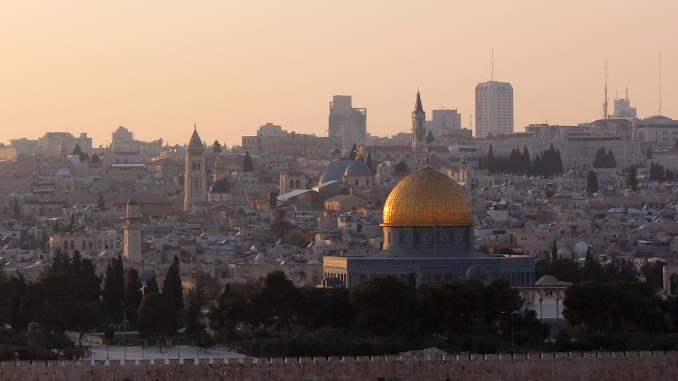
By Richard Walker
Following violent riots and clashes recently between Eritrean migrants in Israel, the extreme right-wing government of Israel’s Prime Minister Benjamin Netanyahu is seeking to deport all of the rowdy “infiltrators,” which is how migrants are characterized by Israeli politicians.
Click the Link Below to Listen to the Audio of this Article
Netanyahu’s government wants to round-up as many as 15,000 to 30,000 of its “infiltrators” and deport them. This is, however, easier said than done. For example, where do you deport them to when African nations have made it clear that they do not want them? Al Jazeera suggested that Israel might employ the British strategy of paying a country like Rwanda to take its migrants, but instead of money, Israel, as a big arms manufacturer, could promise weapons.
“Israel will enter some kind of nefarious agreement with another African country in exchange for a promise of Israeli weapons or military training, that may or may not be used against that country’s own citizenry,” Al Jazeera speculated.
If Israel, as many of its cabinet ministers are suggesting, were to deport its 15,000 Eritrean “infiltrators” back to Eritrea, a small nation with no media and forced labor run by a dictator who does not believe in elections, they would likely face persecution. There would be an outcry in Western capitals and in many other parts of the globe. However, Israel may not care, just as it does not care about the worldwide condemnation of its treatment of Palestinians.
The “infiltrator” issue has been simmering for some time in Israel because extreme elements in the Netanyahu cabinet who have vowed to maintain Israel as a Jewish supremacist state have been warning about the influx of “infiltrators” for months. Now, they have an excuse to force their colleagues to call for a round-up of all migrants with the aim of expelling them from Israel.
This issue has come to a head because of serious rioting on the streets of Tel Aviv that left over 100 civilians injured along with 30 policemen. The clashes occurred between opponents and supporters of the Eritrean government, who, through its embassy in Israel and other European capitals, organized festivals with the help of small numbers of pro-Eritrean refugees to promote the Eritrean government.
Following the unrest, the Israeli prime minister’s office announced it was organizing “a special ministerial team to review the possibility of taking action against illegal infiltrators who took part in the unrest, including deportation.”
Nissim Vaturi, an Israeli politician and ally of Netanyahu, boldly declared he wanted “lines of buses” in Tel Aviv to deport the migrants, demonstrating the extreme hostility the Israeli government has towards the “infiltrators.”
“This is why reform is needed!” Vaturi exclaimed, referring to the ongoing political conflict raging in Israel over judicial reform and other measures designed to consolidate more power in the executive branch to effectively deal with issues relating to maintaining Jewish supremacy in Israel. The Israeli Supreme Court has declared it illegal to jail migrants for lengthy periods without trial, and that a plan to set aside over 20% of migrant’s wages that they would only get back when they left Israel was unconstitutional.
Meanwhile, last month in Sweden, a festival led to a massive counter-demonstration by Eritrean migrants and resulted in serious rioting on the streets of Stockholm. Swedes were shocked, given that their country had welcomed 15,000 Eritrean refugees. Swedish Justice Minister Gunnar Strommer spoke for all of the Swedish people when he stated the obvious: Sweden did not deserve this.
“If you flee to Sweden to escape violence, or are on a temporary visit, you must not cause violence here,” Strommer warned. “The police’s resources are needed for other purposes than keeping different groups apart from each other.”
Noticeably, he did not use the language of Israeli cabinet ministers by calling refugees “infiltrators” or threaten to deport them all.
The reaction to Eritrean clashes in Tel Aviv was the opposite. It was swift and fierce.
Israeli Finance Minister Bezalel Smotrich, a leading figure in the Jewish settler movement, warned that if the “infiltrators” were not returned to their homelands, the riots were only a preview of Israel’s future. He seemed to imply that all migrants should be deported and this would mean close to 30,000 since there are 15,000 from Sudan.
“The High Court of Justice is responsible for these riots,” Smotrich stated, again referring to the ongoing debate over judicial reform. “That’s why we’re leading amendments to the legal system that will allow elected officials to make decisions and execute them.”
The irony here is that in 2018, Netanyahu, who was in office then, too, reached a deal with the UN to resettle some of Israel’s migrants abroad. Uganda agreed to take some, but this agreement fell through. More importantly, the UN deal would have meant Israel offering citizenship to 16,000 “infiltrators.” He abandoned this plan when politicians on the right condemned it, saying it would encourage a big flow of people from Africa. Netanyahu said he agreed with this analysis.
Now, to please his cabinet colleagues, he is promising to deport all migrants, a move that has garnered nothing but silence from the Anti-Defamation League in America, which would be apoplectic if such a proposal were publicly uttered in the U.S.
In Netanyahu’s opinion, flows of migrants from African countries represent a serious threat to Israel’s security and to “its character as a Jewish and democratic state.” While Israel aggressively works to protect the country’s national and religious identity, including contemplating expelling rowdy foreigners, the exact opposite approach is pursued by Western governments.





